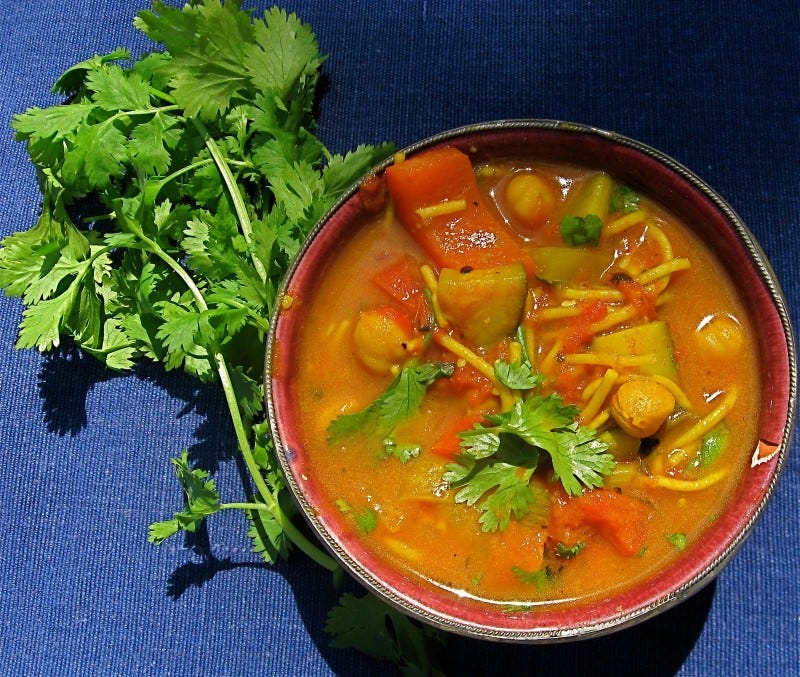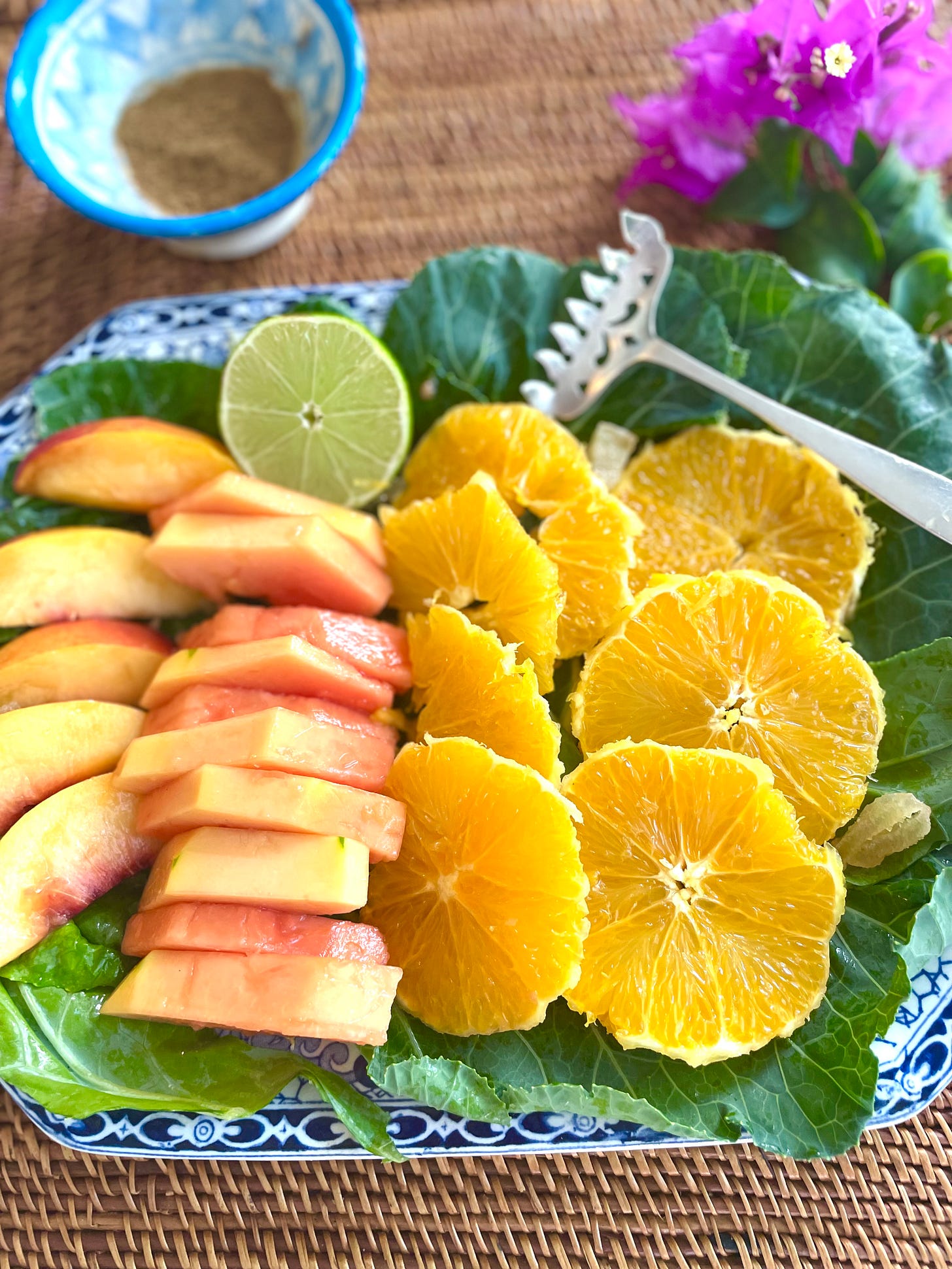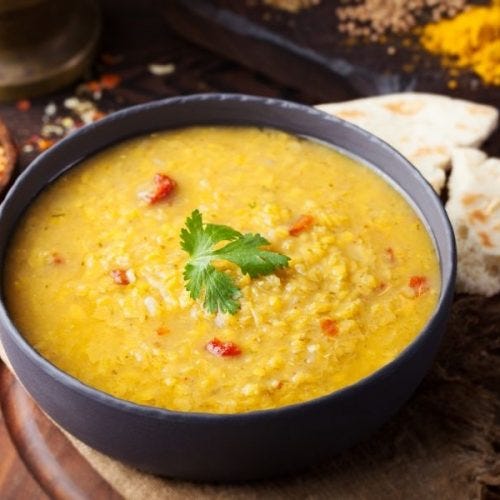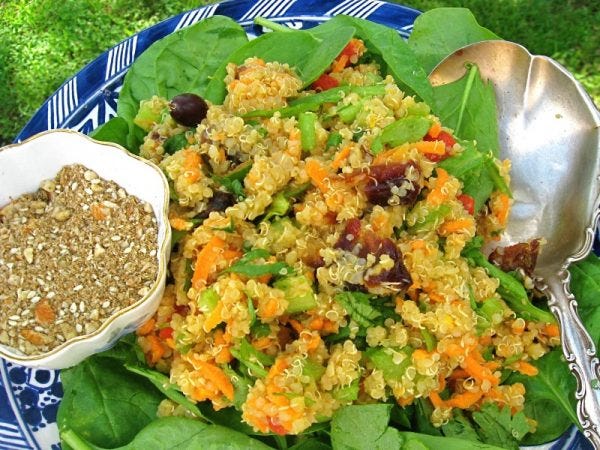Broccoli Rising and Hiding in Plain Sight
Hello, hello, whoever you are. We are a delicious mix of races, religions and beliefs. Let’s celebrate ourselves and show the world who we really are. Do it for Ramadan. Do it for Queenie. Do it for those in hiding everywhere.
You may know Mayukh Sen as the James Beard Award-winning author of Taste Makers Seven Immigrant Women Who Revolutionized Food in America. Some of the seven women— Marcella Hazan, doyenne of Italian cuisine and Najmieh Batmanglij, Irani cookbook author and chef, may be familiar. The other five, probably not so much. And that is Mayukh’s gift — to show you who and what you might otherwise not see, and in the process make you care.
I was sorry to see him move away from food writing in his second book. Until I read it. Love,Queenie traces Bombay-born Queenie Thompson, who transformed herself through sheer determination into the Hollywood actress Merle Oberon. Prior to Love, Queenie, what I knew of Merle Oberon was pretty much limited to her role as Cathy in the 1939 film classic, Wuthering Heights. Love, Queenie subtitled Merle Oberon, Hollywood’s First South Asian Star compassionately depicts her as a woman “loved by many but understood by few.”
Like the women profiled in Taste Makers. Oberon was an outsider in America, and doubly so in Hollywood with its strict Hays censorship code, which forbade, among other things, “miscegenation sex relationships between the white and black races from being depicted in movies.” That extended to so-called exotics like Oberon and anyone not conforming to a white American ideal of beauty.
Oberon faced stiff headwinds at a time “when the fear of Hindu — sometimes spelled as ‘Hindoo’ ran riot in America.” To survive, she had to bury her past and remake herself, from a totally fabricated biography to submitting to harsh studio treatments to bleach her skin.
This may seem a long way from food writing, but as Mayukh writes: I've found the two have commonalities. I was an "accidental" food writer, by which I mean that I never intended to write about that topic professionally, having been an aspiring film critic since childhood. But I learned early on that it takes great skill to describe food, as an object, with such clarity that your reader can taste it on the page. A sensualist can write of a dish so persuasively that their reader will be compelled to get into the kitchen and cook it, or to book a reservation for that restaurant where it's served. I've tried to apply a similarly tactile approach to writing about film: How can I write about a movie in such a way that allows my reader to picture it in their head, as if they're sitting beside me watching the images flash across the screen? Writing about food taught me just how to do that.
Mayukh excels at that but also in revealing the unseen, whether it’s the back of house people we never see preparing our meals or the glamorous Hollywood icon trapped by the “counterfeit beats that Merle had been taught to master throughout her life.”
Oberon never felt free to show who she really was. Almost a century after Oberon’s heyday, with race, religion and sexual identity under attack, many of us are still hiding parts of who we are in order to get by. That’s a hard way to live.
Later in life, Oberon obliquely tried to claim her connection to India by declaring curry to be her favorite food. This brings me, somehow, to Ramadan, which begins this Saturday. That’s early this year, and yet comes just when we need a reset, a reminder of who we are and what matters.
Ramadan, one of the five pillars of Islam, marks 30 days of of faith, prayer, reflection and fasting from dawn to sunset. I’m familiar with — and make — many of the foods enjoyed at Iftar, the meal to break the daylong fast, throughout the Middle East, like Moroccan harira
and ful.
Turns out I also make and enjoy India’s foods for Ramadan, including fruit chaat, which I created in honor of Mayukh and the release of Taste Makers.
Dates are a sweet tradition to break the daylong fast for Muslims everywhere. They’re nutrient-dense, and high-fiber, so they’re low-glycemic, despite their rich caramel taste.
Dates star in this date-studded quinoa salad
They co-star in this traditional Indian tamarind and date chutney from Cinnamon Snail’s Adam Sobel
and earn Best Supporting Actor in my saffron-scented rice dish.
Back to nice cheery food next week.
You can get access to full recipes on a regular basis with a paid subscription. Not a paid subscriber yet? No problem! Join now to enjoy exclusive content like recipes and more.
Not quite ready to upgrade to be a paid subscriber but want to support Broccoli Rising? Adding to my tip jar helps keep me in broccoli and beans. I’m madly grateful. Thanks.
Thanks to you all for reading and subscribing. This issue of Broccoli Rising is free. Please spread the broccoli love and share.
You can also visit SoulfulVegan.com to find more recipes and connect with me online at YouTube, Instagram, Twitter and Substack Notes.









